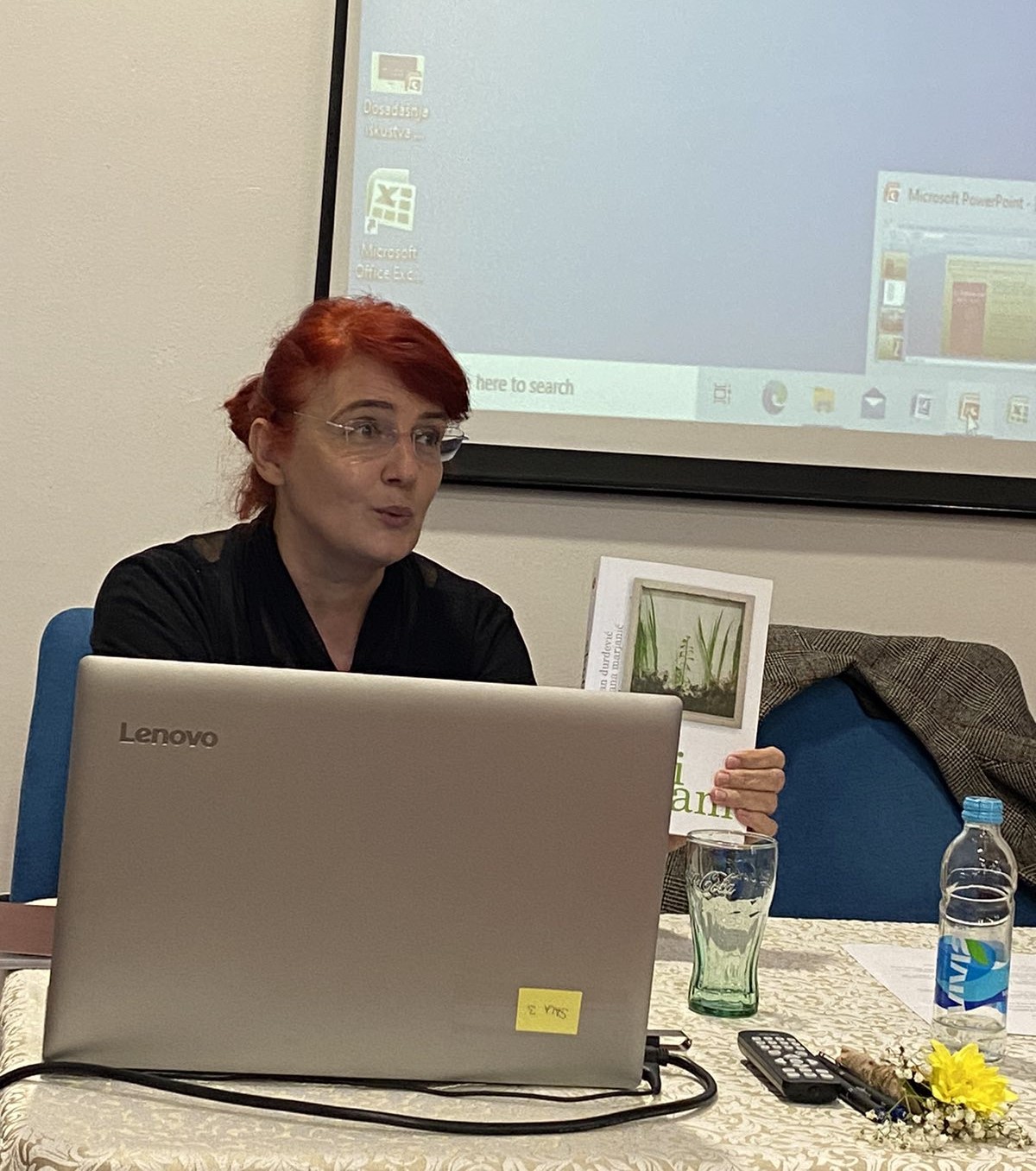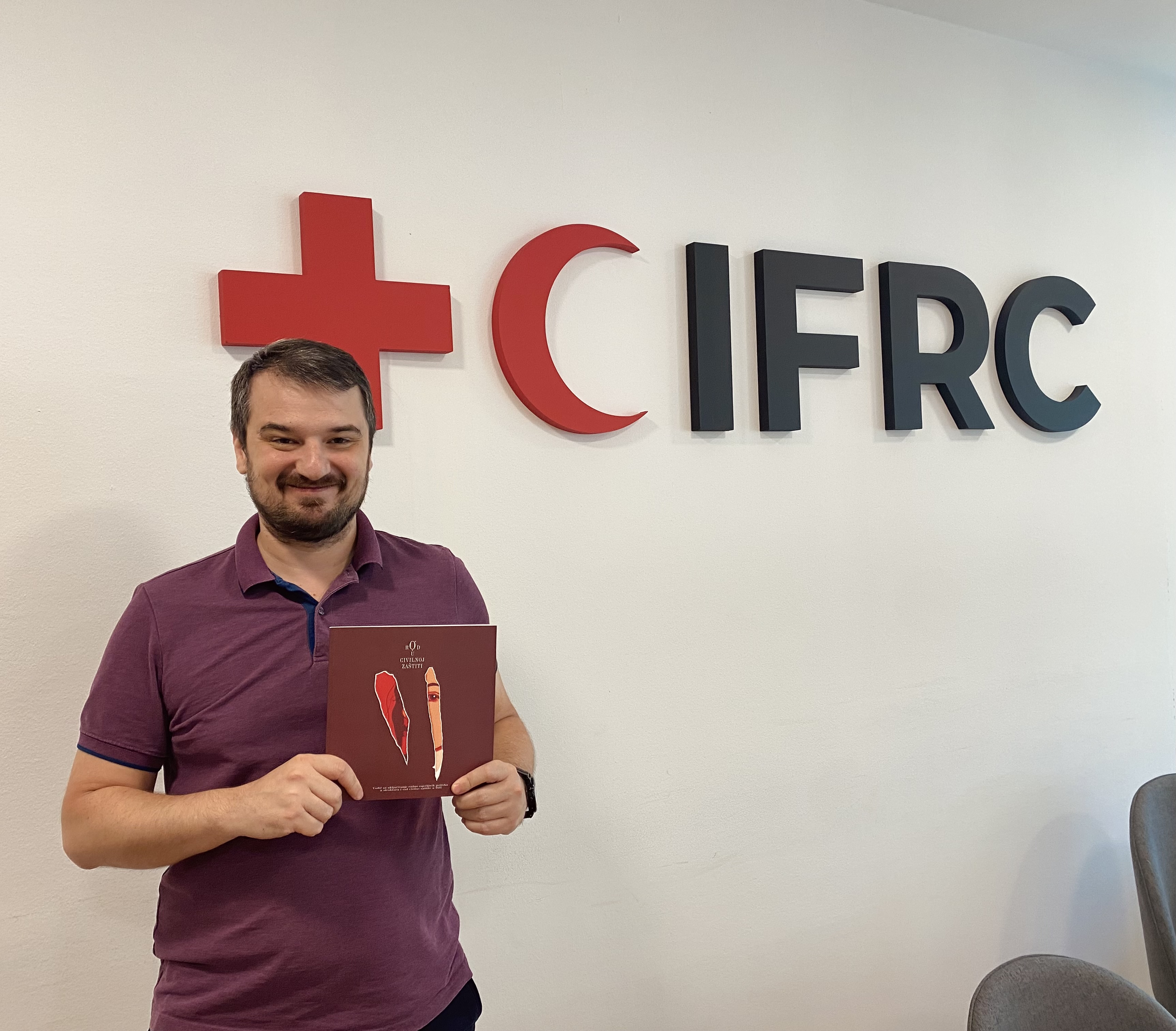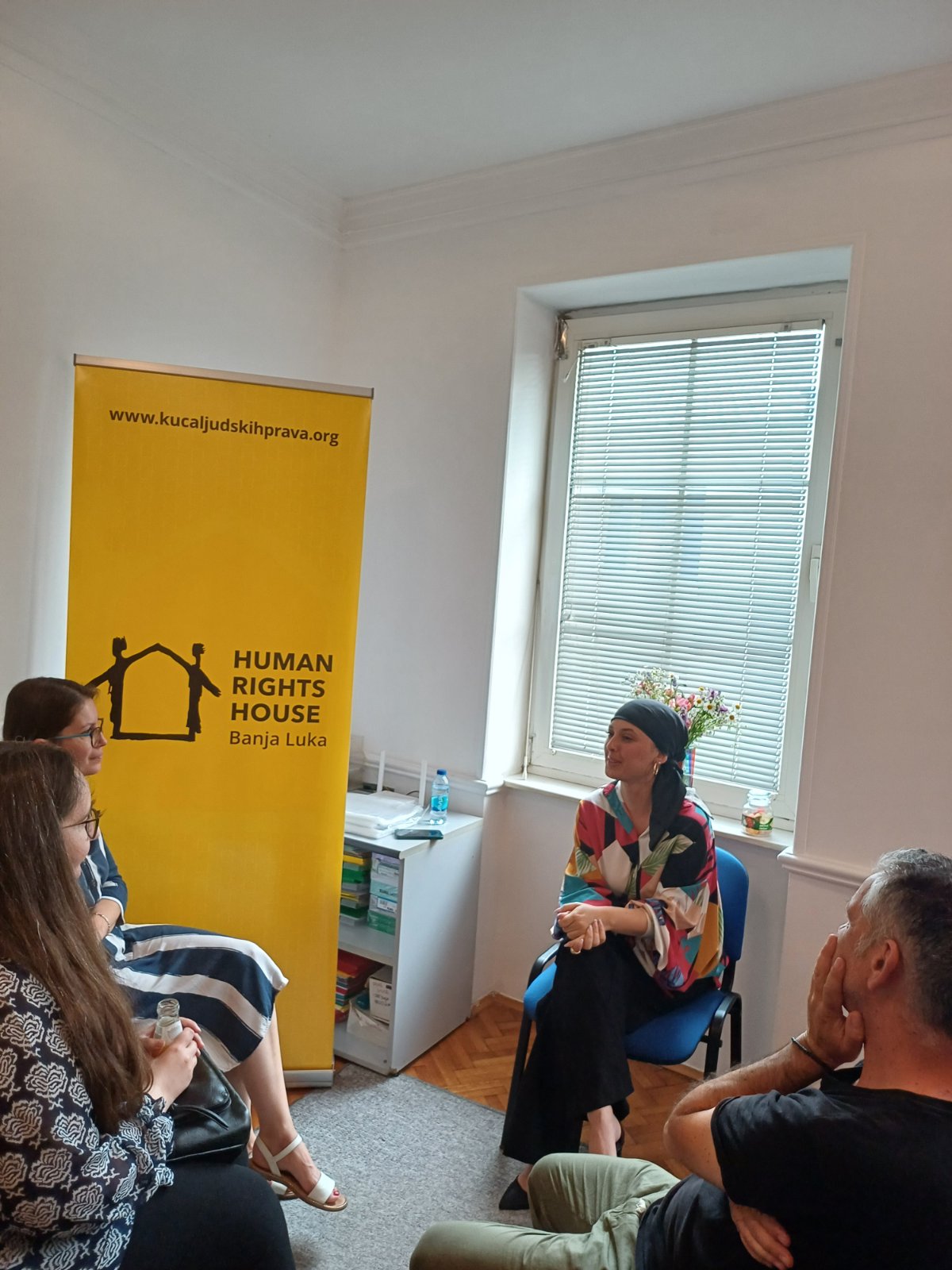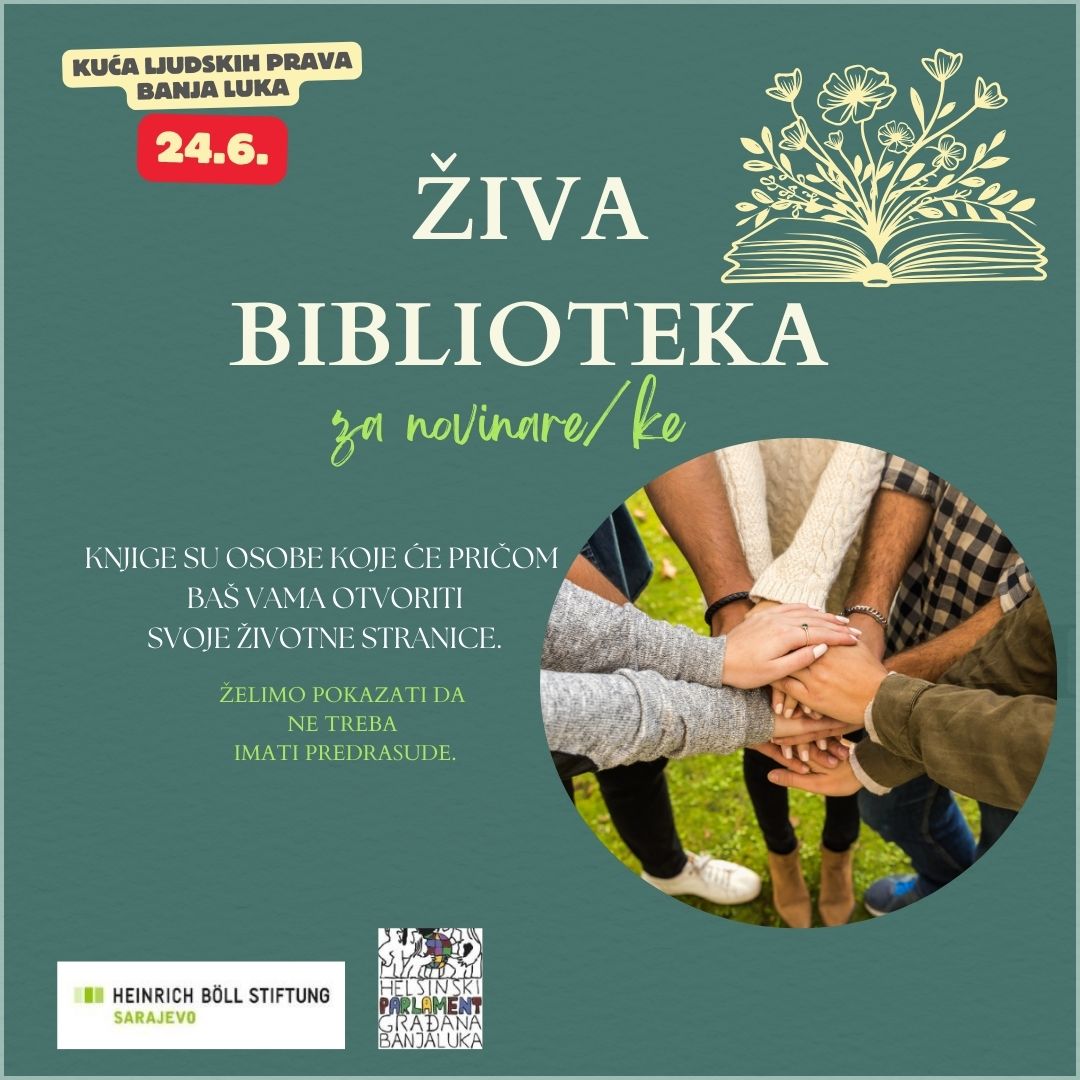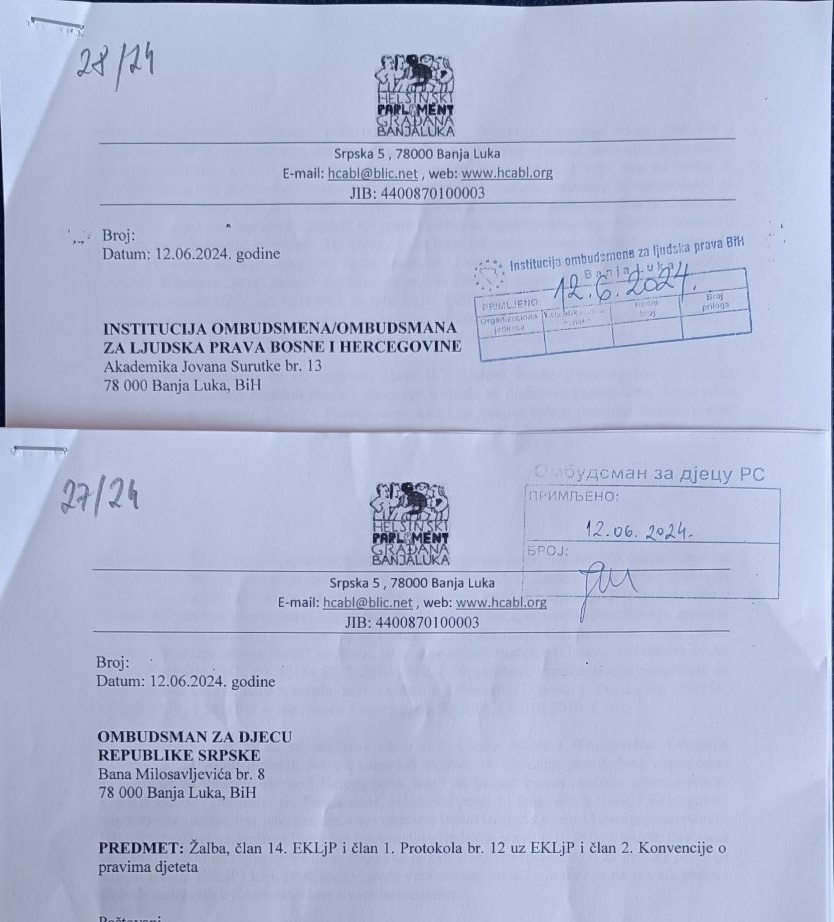In the middle of October, we had the opportunity to host dr. sc. Suzana Marjanić from the Institute of Ethnology and Folklore in Zagreb, who, together with Goran Đurđević, edited the anthology “Ecofeminism: Between Green and Women’s Studies”. Suzana spoke about the anthology, the beginnings of ecofeminism in our region, but also in the world, as well as the most important authors of the ecofeminist movement and their works, as part of the lecture on the first day of the “Third Working Gathering of the Platform for Ecofeminist Activity in Bosnia and Herzegovina EKOFEM BiH”.
We took advantage of her stay in Banja Luka to ask Suzana a few short questions.
How are ecofeminists recognized?
Suzana: In the third phase of feminism, post-feminism, ecofeminism simply extended the issue of rights to all the so-called others, and besides women, there are nature and animals. In short, ecofeminism (or ecofeminisms) talks not only about discrimination against women, but also against nature and animals. Within that eco-radical thinking, they simply point out that there is no freedom for women while there is no freedom for both nature and animals, given that the system of oppression is the same.
What connects green politics and women’s studies?
Suzana: When Goran Đurđević and I were thinking about the title, that is, the title of the anthology, we put ecofeminism – singular, although ecofeminism is not manifested in the singular; just as we have feminisms, we also have ecofeminisms, from the spiritual to the political. Then Goran and I thought that the subtitle should be between women’s and green studies, that is, in between, that bridge, the link between feminism and green politics, which is crucial considering all necropolitics today. Some people do not like to mention numbers, but the fact is that about 50 thousand plant and animal species disappear every year, which is a terrible number.

Why did ecofeminism somehow remain on the margins of both movements?
Suzana: It is always, it seems to me, very difficult to recognize the oppression of one’s own species as the same pattern as the oppression of another species, and to actually see that pattern as the same. I showed you a picture of a calf farm in Oregon; why do we call calves as calves and not baby cows? If we called them babies, we might not treat them as resources that are separated from their mothers and slaughtered immediately after birth. Joan Dunayer talks about this in her book on speciesism when she says that political power and oppression lies in language. So, if we said of an animal that it died, no longer alive, croaked, mated, and if we taught children that way, I think that the oppression of women would also decrease in the future.
What is your life motto?
Suzana: Until the other person is free, I cannot be free either. I always want and try to help others; I really like the “politics” of coexistence, of the non-aligned. I write about this in the introduction to my book Cetera animantia.
What do you think are some key principles of ecofeminism?
Suzana: I would say that these are solidarity, coexistence, ethics of care. If we really cared about nature and animals, if we did not define ourselves nationally, if we did not live in modern totemism, I think that change would be possible. We, in fact, continue to live in totemism, since our totems, as recognized by Erich Fromm, are flags and coats of arms, so in all the rooms where we raise children there are insignia of power. If we would remove those insignia of power, if we would say that we are Earthlings and that we have this one planet Earth, although the dominant corporate politics no longer care about Earth, they talk more and more about going to Mars, I think the world could change. And what made me happy at your work gathering was that there is an ecofeminist movement in Bosnia and Herzegovina, which unfortunately is not the case in Croatia. Sincere congratulations.
What is your favorite movie?
Uh, it is hard for me to single out, but here, to stay in this context, I would single out the docu-film “Earthlings” directed by Shaun Monson.
Interviewed by: Dragana DARDIĆ


